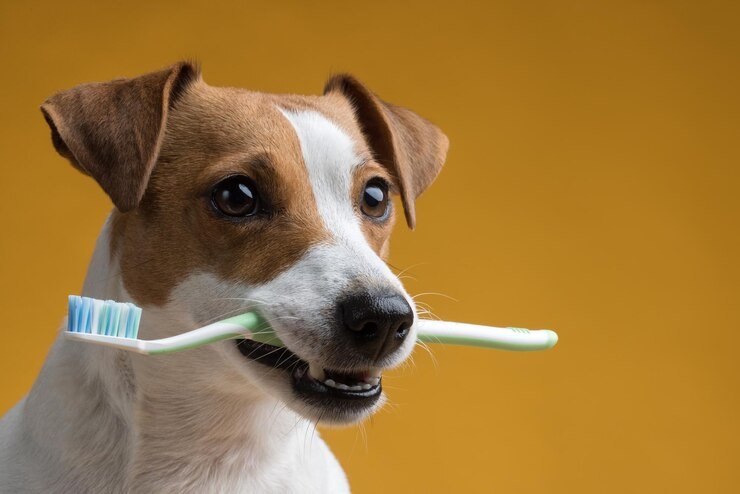
Mar 26, 2024 | Uncategorized
Proper nutrition plays a crucial role in the health and vitality of pets. In this article, we will discuss the basic principles of nutrition for dogs and cats and how owners can ensure their pets receive a balanced and nutritious diet.
A healthy and balanced diet is essential to ensure that pets receive the necessary nutrients to sustain health and well-being throughout life. Choosing the right foods plays a key role in preventing diseases and supporting proper development.
Key Points:
- Essential Nutrients: Pet foods should provide the essential nutrients needed to meet the specific requirements of each species. This includes high-quality proteins, healthy fats, complex carbohydrates, vitamins, and minerals.
- Age and Life Stage: The nutritional needs of pets vary according to age and life stage. Puppies, adults, and senior animals have different dietary requirements and should receive foods formulated specifically for their needs.
- Protein Sources: Proteins are essential for growth, repair, and maintenance of body tissues. Pet foods should contain sources of high-quality protein, such as meat, fish, or eggs, and avoid animal by-products.
- Balanced Diet: A balanced diet is crucial to ensure that pets receive all the necessary nutrients in the right proportions. This includes a mix of proteins, carbohydrates, fats, vitamins, and minerals tailored to the pet’s specific needs.
Proper nutrition is essential for the health and well-being of pets. By providing a balanced and nutritious diet, pet owners can help their animals live long, healthy, and happy lives.

Mar 26, 2024 | Uncategorized
Dental hygiene is crucial for the oral health of pets. In this article, we will explore the importance of teeth brushing and other dental care practices for dogs and cats.
Many pet owners underestimate the importance of their pet’s dental health. However, lack of dental care can lead to a range of issues, including periodontal disease, cavities, and even more serious health problems such as heart and kidney disease.
Key Points:
- Prevention of Dental Diseases: Regular teeth brushing helps prevent the buildup of plaque and tartar, which are the leading causes of periodontal disease in dogs and cats. Periodontal disease can lead to inflamed gums, tooth loss, and severe infections.
- Improvement of Overall Health: Proper oral health is closely linked to the general health of the pet. Dental infections can affect vital organs such as the heart and kidneys and can reduce the quality of life of the animal.
- Fresh Breath: Regular teeth brushing helps maintain the pet’s breath fresh and pleasant. Bad breath can be a sign of underlying dental problems and should be promptly addressed.
- Prevention of Behavioral Problems: Pain and discomfort caused by dental issues can lead to changes in the pet’s behavior, such as aggression, loss of appetite, and aversion to toys or hard food.
- Professional Procedures: In addition to regular brushing, pets should receive regular dental check-ups and professional cleanings by the veterinarian. These procedures help detect and treat dental problems early, before they become severe.
Proper dental hygiene is essential to ensure the health and well-being of pets. By incorporating regular teeth brushing and professional dental examinations into their care routine, pet owners can help their animals maintain happy and healthy smiles for many years.

Mar 26, 2024 | Uncategorized
Regular veterinary check-ups are essential for maintaining your pet’s health and well-being. In this article, we’ll discuss the importance of these check-ups and what they entail.
Just like humans, pets require regular medical attention to stay healthy and happy. Veterinary check-ups play a crucial role in preventing and addressing health issues before they escalate into more significant problems.
Main Points:
- Preventative Care: Regular check-ups allow veterinarians to monitor your pet’s overall health and detect any potential issues early on. Vaccinations, parasite control, and dental care are essential components of preventative care.
- Comprehensive Examinations: During a veterinary check-up, your pet will undergo a thorough physical examination to assess their overall health. The veterinarian will check their weight, heart rate, respiratory rate, and examine their eyes, ears, mouth, and skin for any abnormalities.
- Vaccinations and Preventative Treatments: Vaccinations are critical for protecting your pet against contagious diseases. Your veterinarian will develop a vaccination schedule tailored to your pet’s age, lifestyle, and risk factors. Additionally, preventative treatments for parasites such as fleas, ticks, and heartworms may be recommended based on your pet’s needs.
- Nutritional Counseling: Your veterinarian can provide valuable guidance on nutrition and dietary requirements specific to your pet’s breed, age, and health condition. A balanced diet is essential for maintaining optimal health and preventing obesity and related health issues.
- Behavioral Assessment: Veterinarians can also offer advice on behavioral issues such as anxiety, aggression, or inappropriate elimination. They may recommend training techniques or behavioral modification strategies to address these issues effectively.
Regular veterinary check-ups are essential for ensuring your pet’s health and well-being throughout their life. By prioritizing preventative care and early detection, you can help your pet live a long, healthy, and happy life.

Mar 26, 2024 | Uncategorized
Owning a pet comes with the responsibility of providing a safe and secure home environment. In this article, we’ll explore essential tips for ensuring your furry friend’s safety and well-being within your home.
Welcoming a pet into your home is a joyous occasion, but it also requires careful consideration of their safety needs. From curious puppies to adventurous cats, pets can encounter various hazards if their environment isn’t adequately managed.
Main Points:
- Pet-Proofing Your Home: Identify and eliminate potential hazards such as toxic plants, small objects that could be swallowed, electrical cords, and household chemicals. Secure cabinets and trash cans to prevent access to harmful substances.
- Creating Safe Spaces: Designate specific areas or rooms where your pet can roam freely without the risk of injury or escape. Provide comfortable bedding, toys, and access to fresh water to ensure their comfort.
- Outdoor Safety Measures: If your pet spends time outdoors, ensure that your yard is securely fenced to prevent escape and encounters with wild animals. Check for gaps or holes in the fence and supervise outdoor activities to minimize risks.
- Monitoring and Supervision: Keep a watchful eye on your pet, especially during their exploratory phases or when introducing them to new environments. Supervision is crucial to prevent accidents and address any behavioral issues promptly.
- Emergency Preparedness: Familiarize yourself with common pet emergencies and have a plan in place to address them. Keep a pet first aid kit on hand and know the location of the nearest veterinary clinic for emergencies.
By taking proactive steps to create a safe home environment, you can ensure that your pet enjoys a happy and healthy life free from unnecessary risks and dangers.



